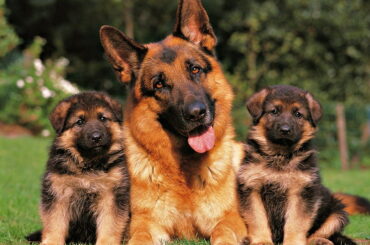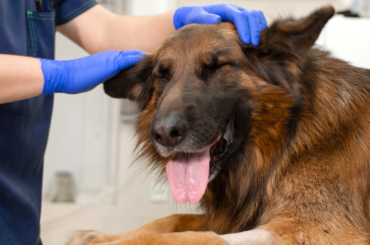Proper nutrition is the cornerstone of a healthy and happy German Shepherd. As intelligent and active dogs, they have specific dietary needs that contribute to their overall well-being. In this comprehensive guide, we’ll delve into the essential aspects of German Shepherd nutrition, offering valuable insights and practical feeding tips to help dog owners provide optimal care for their four-legged companions.
- Understanding the Dietary Needs of German Shepherds:German Shepherds are known for their energy, intelligence, and athleticism. Their nutritional requirements differ from other breeds due to their size, activity levels, and potential health concerns. We’ll explore the key components of a well-balanced diet tailored to meet the specific needs of German Shepherds.
- Choosing the Right Dog Food:The pet food market is flooded with options, making it challenging for dog owners to select the most suitable diet for their German Shepherds. We’ll discuss the importance of high-quality, breed-specific dog food and how to decipher labels to ensure it meets the nutritional standards necessary for these intelligent and active dogs.
- Balancing Macronutrients for Optimal Health:German Shepherds require a balanced combination of proteins, fats, and carbohydrates to support their energy levels, muscle development, and overall health. We’ll break down the role of each macronutrient and provide guidelines on the ideal ratios for a German Shepherd’s diet.
- Addressing Breed-Specific Health Concerns:Certain health issues, such as hip dysplasia and digestive sensitivities, are more prevalent in German Shepherds. We’ll explore how nutrition plays a crucial role in preventing and managing these issues, including the incorporation of supplements, joint-supporting nutrients, and easily digestible food options.
- Feeding Puppies and Adolescents:The nutritional needs of German Shepherd puppies differ significantly from those of adults. We’ll provide a feeding guide for puppy owners, emphasizing the importance of controlled growth, proper bone development, and the transition to adult food as the puppy matures.
- Meal Portions and Feeding Schedule:Maintaining a healthy weight is crucial for German Shepherds, considering their predisposition to joint problems. We’ll discuss appropriate portion sizes based on age, weight, and activity level, along with establishing a consistent feeding schedule to promote digestive health and prevent obesity.
- Hydration and Its Role in Well-being:Adequate hydration is often overlooked but plays a vital role in a German Shepherd’s health. We’ll highlight the signs of dehydration, strategies for encouraging water intake, and the importance of proper hydration for overall organ function and joint health.
- Common Dietary Pitfalls to Avoid:In navigating the world of dog nutrition, owners may encounter common pitfalls that can impact a German Shepherd’s health negatively. We’ll identify these pitfalls, such as overfeeding, feeding table scraps, and the dangers of certain human foods, providing practical tips to avoid them.
- Special Diets for German Shepherds with Sensitivities:Some German Shepherds may have food sensitivities or allergies. We’ll explore how to identify and address these issues, including the importance of elimination diets, hypoallergenic food options, and consulting with a veterinarian for guidance.
- Regular Monitoring and Adjustments:A German Shepherd’s nutritional needs can change over time due to factors like age, activity level, and health status. We’ll discuss the importance of regular monitoring, recognizing signs of nutritional imbalances, and making adjustments to their diet accordingly.




 Choosing the best feed for a German Shepherd involves considering various factors, including the dog’s age, activity level, health status, and any specific dietary requirements. While individual dogs may have unique needs, here are some recommendations for high-quality dog food that is often well-suited for German Shepherds:
Choosing the best feed for a German Shepherd involves considering various factors, including the dog’s age, activity level, health status, and any specific dietary requirements. While individual dogs may have unique needs, here are some recommendations for high-quality dog food that is often well-suited for German Shepherds:


